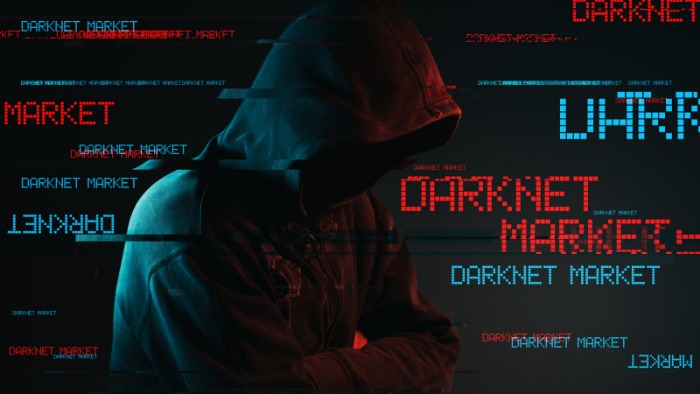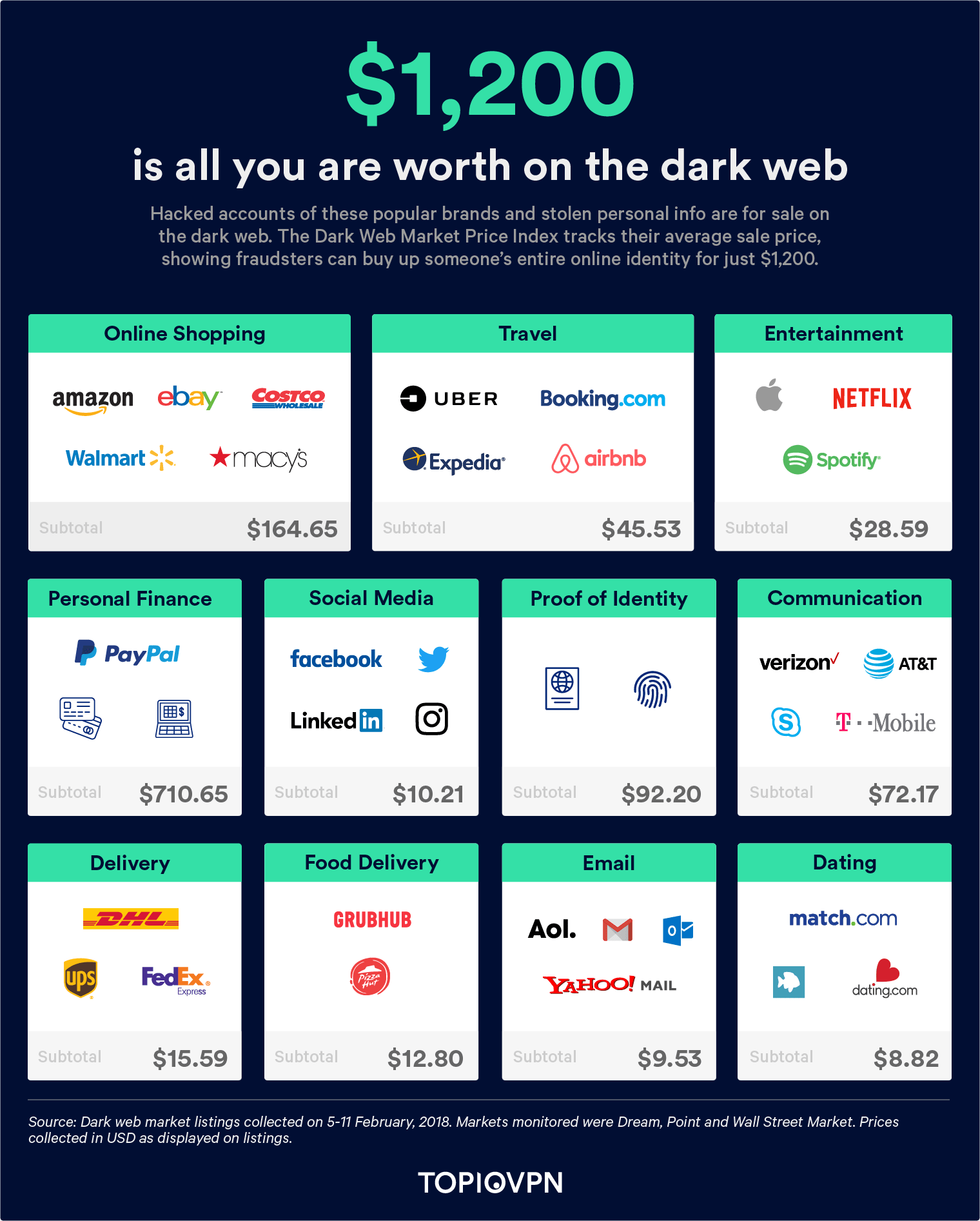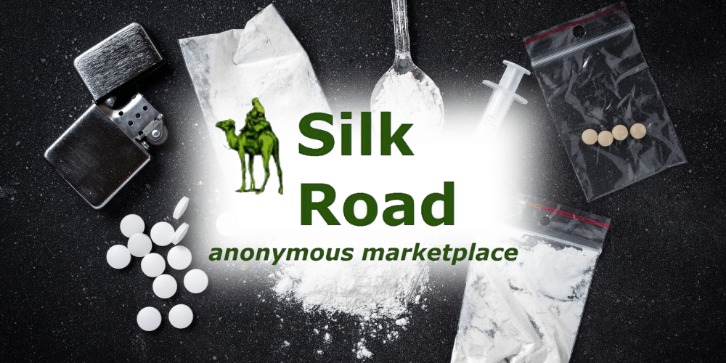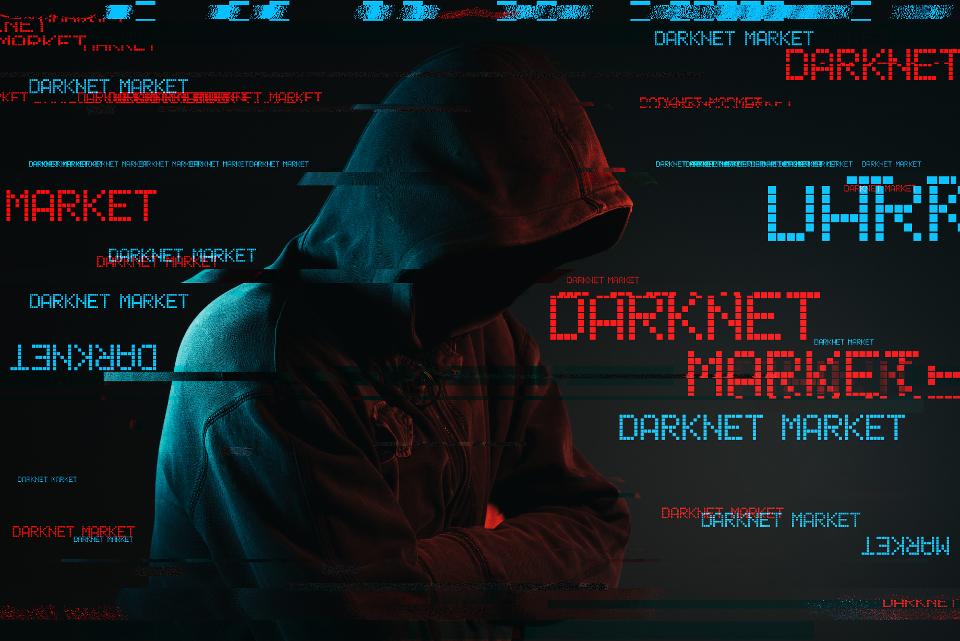Overview of Dark Web Markets
The dark web is a hidden part of the internet that requires special software to access, such as Tor. Within this concealed space, dark web markets operate as online marketplaces where a wide range of illegal and legal goods are bought and sold. These markets often feature anonymous transactions, making them difficult to regulate and monitor. Understanding how dark web markets function is essential for recognizing the risks associated with illegal activities and the importance of cybersecurity.
Definition and Characteristics of Dark Web Markets
The dark web markets are online platforms operating within the hidden layers of the internet, accessible only through specialized anonymizing software such as Tor. These markets serve as digital marketplaces where users can buy and sell a wide array of goods and services, often involving illicit activities. Due to their concealed nature, these platforms are difficult to detect and regulate, making them a significant concern for law enforcement agencies worldwide.
Dark web markets are characterized by their anonymous operations, utilizing encryption and decentralized hosting to protect both buyers and sellers. They typically feature user reviews, escrow services, and secure payment methods to facilitate transactions while maintaining privacy. These platforms often focus on the trade of illegal substances, stolen data, counterfeit goods, and hacking tools, although they may also host legal items in some cases.
The unique structure of a dark web market allows for a degree of anonymity and security not found on the surface web. This makes them attractive to participants looking to avoid detection by authorities. However, this same characteristic contributes to their reputation as hubs for criminal activity, reinforcing the importance of understanding their definition and characteristics in efforts to combat illegal online markets.
Types of Goods and Services Offered
The dark web market is a hidden portion of the internet that operates beyond the reach of conventional search engines and standard web browsing. This covert marketplace is characterized by its anonymous and secure environment, allowing users to buy and sell a wide range of goods and services without revealing their identities. The dark web market has gained notoriety for facilitating illegal activities, though it also hosts legitimate uses such as privacy protection and confidential communications.
Within these markets, a diverse array of goods and services are offered, often catering to both lawful and illicit needs. Common illegal items include stolen data, counterfeit currency, weapons, and illegal drugs. Additionally, the dark web market also features services such as hacking, malware development, and illicit financial transactions. On the other hand, some vendors provide legal products like digital currencies, privacy-focused tools, and subscription-based content that may be difficult to access through traditional channels.
The presence of illegal activities in the dark web market has led to significant law enforcement efforts aimed at dismantling these operations. However, the market remains active due to its resilience, driven by its emphasis on anonymity and encryption. As such, users of dark web markets should exercise caution and be aware of the potential risks involved in engaging with these underground platforms.
Accessing Dark Web Markets
Accessing dark web markets involves navigating a complex and often secretive part of the internet where users can find various goods and services that are not available on the surface web. These markets operate within the dark web, a network that requires specialized tools and knowledge to access safely. Understanding how to access these platforms responsibly is crucial for those interested in exploring the dark web market landscape. It is important to proceed with caution and awareness of legal and security considerations while exploring these hidden marketplaces.
Use of Tor and Onion Routing Services
Accessing dark web markets requires specialized tools and precautions due to the inherent privacy concerns and legal considerations involved. These markets operate on hidden networks that are not accessible through standard web browsers, making anonymity a critical component for users seeking to browse or purchase goods and services securely.
The most commonly used method to access the dark web is through the Tor network, which employs onion routing to anonymize user activity. Tor, short for The Onion Router, encrypts internet traffic multiple times and routes it through a series of volunteer-operated servers called nodes. This layered encryption and routing process makes it extremely difficult to trace the origin or destination of the data, thereby providing a high level of anonymity for users exploring dark web markets and other hidden services.
Onion routing services are the backbone of the Tor network, facilitating secure and private communication channels. When accessing a dark web market, users typically connect via the Tor Browser, a modified version of Mozilla Firefox configured to enable anonymous browsing over the Tor network. This setup ensures that location data and browsing habits are concealed, reducing the risk of surveillance or cyber threats.
While these tools make it possible to access dark web markets discreetly, it is essential for users to exercise caution and ensure they understand the legal landscape in their jurisdiction. Engaging in illegal activities on the dark web can lead to severe legal consequences, and security best practices should always be followed to minimize risks such as malware, scams, or data breaches.
In summary, accessing dark web markets involves leveraging the privacy-enhancing features of Tor and onion routing services to maintain anonymity. Proper understanding and cautious operation are vital to navigate the complexities of the dark web safely and responsibly.
Necessary Tools and Browser Configurations
Accessing dark web markets requires careful preparation, as these platforms operate outside traditional internet networks and often involve significant privacy and security concerns. To navigate these hidden parts of the web safely, users need to equip themselves with specific tools and configure their browsers appropriately. Understanding these requirements is essential for anyone interested in exploring dark web markets responsibly and securely.
First and foremost, the primary tool for accessing dark web markets is the Tor Browser. It is designed to anonymize your online activity by routing your connection through a network of relays, making it difficult to trace your location or identity. When installing the Tor Browser, ensure that you download it from the official sources to prevent malicious modifications. It’s also recommended to keep the browser updated regularly to benefit from security patches and improvements.
Alongside the Tor Browser, users should consider using additional security measures such as a reliable Virtual Private Network (VPN). A VPN can add an extra layer of anonymity before connecting to the Tor network, especially in regions with internet restrictions or monitoring. However, it is crucial to choose a trustworthy VPN service that values privacy and does not log user data.
Configuring the browser appropriately is vital for maintaining security when accessing dark web markets. Disable scripts and plugins that can compromise your anonymity, and avoid enabling features that may reveal your IP address. It’s also advisable to adjust security settings within the Tor Browser to a high level, which blocks potentially dangerous website features and restricts the execution of JavaScript, images, and other elements that could identify or locate you.
Furthermore, maintaining good operational security practices is critical. Use strong, unique passwords for each market account, avoid sharing any personal information, and consider utilizing cryptocurrency wallets that prioritize privacy. Never access dark web markets from devices connected to personal or work accounts, and be wary of scams or phishing attempts.
In essence, accessing dark web markets involves using specialized tools like the Tor Browser, implementing robust security configurations, and adhering to best practices for privacy. Proper preparation ensures a safer experience when exploring this complex and often risky environment.
Market Structure and Operations
Market structure and operations play a crucial role in understanding the dynamics of various marketplaces, including the hidden realm of the dark web. These markets are characterized by complex systems that facilitate the buying and selling of goods and services outside traditional financial and legal channels. Analyzing how these markets operate, including their hierarchical organization, transaction mechanisms, and security measures, provides insights into their resilience and vulnerabilities. The dark web market is particularly noteworthy for its decentralized yet interconnected networks that enable anonymous exchanges. For those interested in exploring further, resources such as this dark web market platform offer a glimpse into these clandestine economic systems.
Marketplaces and Escrow Systems
The dark web market is a complex and often clandestine component of the internet that functions through specialized marketplaces and escrow systems to facilitate anonymous transactions. These markets operate within a layered network infrastructure, making it difficult to trace users and transactions, which is essential for maintaining privacy and security among participants. Understanding the market structure and operations is crucial for comprehending how these illicit exchanges function and how they are managed to prevent fraud and ensure trust.
Dark web marketplaces typically operate on a decentralized or semi-centralized model, where vendors and buyers interact through encrypted platforms that require specific software such as Tor. These platforms provide various categories of goods and services, often illegally, and rely heavily on reputation systems to foster trust in an environment where anonymity is paramount. The market dynamics revolve around secure transaction mechanisms, with escrow systems playing a vital role in mitigating risks for both buyers and sellers.

Escrow systems are a cornerstone of dark web market operations, acting as neutral third parties that hold funds during a transaction until all parties have fulfilled their obligations. This process minimizes the potential for fraud and ensures that vendors deliver the promised goods or services before the buyer releases payment. Such mechanisms are essential in environments where trust is otherwise difficult to establish, and they contribute significantly to market stability and functionality.
Overall, the structure and operations of these markets illustrate a sophisticated attempt to mimic legal commercial environments despite their illicit nature. By employing advanced encryption, escrow systems, and reputation management, dark web markets aim to sustain ongoing activity while circumventing traditional legal frameworks. Understanding these elements is crucial for law enforcement, cybersecurity experts, and policymakers working to combat illegal activities conducted through these hidden online platforms.
Market Entry and User Registration
The dark web market represents a complex and often clandestine segment of the online economy, characterized by unique market structures and operational dynamics. These markets typically operate through encrypted networks, such as the Tor network, to ensure user anonymity and secure transactions. The architecture of these markets often mimics traditional online marketplaces but with additional layers of security and secrecy to protect both vendors and buyers. Market structure tends to be decentralized, with multiple vendors offering a wide range of illicit goods and services, and a community-driven approach to governance and dispute resolution.
Market operations on the dark web are highly organized yet adaptable, often relying on reputation systems, escrow services, and encrypted communication channels to facilitate secure and trustworthy exchanges. Vendors must maintain high standards of privacy and secure operational procedures to avoid detection by law enforcement entities. The volatile nature of these markets means they frequently face shutdowns and escapes, leading to a continuous cycle of market creation and dissolution.
Market entry involves a rigorous process where new vendors and buyers need to complete user registration through anonymous and encrypted channels. During registration, users often create pseudonymous profiles, avoiding the use of real identities, and may need to verify their credibility through reputation scores or escrow services. These measures help mitigate risks, promote trust, and ensure that the market remains functional despite its illicit nature. Users are advised to exercise caution and adhere to operational security best practices to minimize exposure and protect their privacy while navigating the dark web market landscape.
Security and Anonymity Measures
Security and anonymity are critical components when navigating the dark web, especially within dark web markets where sensitive transactions occur. Ensuring privacy helps users protect their identities and maintain safety from potential threats or law enforcement scrutiny. Sophisticated measures, such as the use of encrypted communication channels and anonymization tools, are commonly employed to safeguard activities. For instance, accessing trusted platforms like dark web markets requires strict privacy protocols to minimize risks associated with exposure. Overall, security and anonymity are foundational for those involved in the dark web marketplace ecosystem, enabling users to operate with confidence while maintaining their privacy at all times.
Encryption Technologies
Security and anonymity are fundamental concerns when navigating or operating in dark web markets. These platforms often rely heavily on advanced encryption technologies to protect user data and to ensure secure transactions. Implementing robust security measures helps prevent unauthorized access and shields sensitive information from potential cyber threats.
Encryption technologies play a crucial role in maintaining privacy within dark web markets. End-to-end encryption ensures that communications between users and vendors remain confidential, making it difficult for third parties to intercept or decipher sensitive data. Additionally, many dark web platforms employ layered security protocols, such as SSL/TLS, to secure data transmissions and protect against man-in-the-middle attacks.
To enhance anonymity, users often utilize tools like Tor, which anonymizes internet traffic by routing it through multiple relays. This obfuscation makes it challenging to trace online activities back to individual users. Furthermore, cryptocurrencies are commonly used within dark web markets for transactions, providing an additional layer of privacy due to their pseudonymous nature.
Implementing comprehensive security and anonymity measures is essential for users and operators of dark web markets to mitigate risks such as surveillance, hacking, or identity exposure. Staying updated with the latest encryption and security protocols ensures a safer environment in these clandestine online spaces. Properly safeguarded, these markets can provide a degree of privacy that is increasingly difficult to attain through conventional online platforms.
Operational Security Best Practices
Ensuring security and maintaining anonymity are paramount when engaging in activities related to the dark web market. Practicing robust operational security (OpSec) minimizes the risks of exposure, theft, or legal complications. Users should prioritize techniques that protect their identity and data from potential threats while navigating this hidden part of the internet.
One of the fundamental best practices is to use security-focused tools such as Tor browser, which provides access to the dark web while masking your IP address and encrypting your traffic. It is essential to keep the Tor browser updated to benefit from the latest security patches and enhancements. Additionally, avoid using personal information or linking identities across different online activities to prevent de-anonymization.

Creating a dedicated, isolated environment for accessing the dark web market enhances security. Employ virtual machines or live operating systems that do not retain data after shutdown. This approach limits the risk of malware and unauthorized data recovery. Users should also regularly update security software, utilize strong, unique passwords, and enable two-factor authentication where available.
Operational security also involves careful management of digital footprints. Avoid using identifiable email addresses or payment methods linked to real identities. When conducting transactions, consider using cryptocurrency in a manner that minimizes traceability, such as privacy coins or mixing services, while remaining aware of the associated risks and legal considerations.
Finally, adopting a cautious communication style and avoiding unnecessary disclosure of personal details helps preserve anonymity. Staying informed about emerging security threats and practicing vigilant behaviors are crucial for anyone involved in exploring or operating within the dark web market. By following these security and anonymity measures, users can significantly reduce vulnerabilities and maintain a safer presence in this complex environment.
Market Volatility and Lifecycle

Market volatility and lifecycle are essential concepts to understand when analyzing dynamic trading environments, especially within the context of dark web markets. These clandestine marketplaces often experience rapid changes driven by law enforcement actions, technological shifts, and user behavior. Navigating such an unpredictable landscape requires awareness of how these markets evolve over time, adapting to various external pressures while maintaining their core operations. Understanding these patterns can provide valuable insights for those interested in the security and economic aspects of dark web activities, including the rise and decline of various dark web markets. For more information on navigating these complex environments, exploring specialized dark web market platforms can be helpful, such as this trusted dark web marketplace.
Market Closures and Shifts
Understanding market volatility and lifecycle is crucial when exploring the dynamics of the dark web market landscape. These markets tend to experience rapid changes due to various factors, including shifts in technology, law enforcement actions, and user demand. Market volatility in these environments can lead to sudden disruptions, the emergence of new platforms, or the decline of existing ones, reflecting the unpredictable nature of clandestine online trading. The lifecycle of a dark web market typically involves its initial launch, periods of stability, growth, and eventual decline or closure, often influenced by external pressures or internal security breaches.
Market closures on the dark web can occur swiftly, often as a result of law enforcement crackdowns or security breaches that compromise customer and vendor data. When a prominent marketplace shuts down, there is usually a ripple effect, prompting users and vendors to migrate swiftly to newer or less-known platforms. Such shifts are driven by both the desire to avoid detection and the pursuit of better features or services offered by emerging markets. The constant flux in market presence and user activity underscores the importance of vigilance and adaptability in navigating these environments.
Shifts in language, branding, and operational focus are common tactics employed by dark web markets to stay resilient against law enforcement efforts and to appeal to diverse user bases. These platforms often rebrand or update their interfaces and language to appear more trustworthy or to disguise their activities, contributing to the ongoing cycle of volatility and renewal. As the dark web market ecosystem continues to evolve, understanding these patterns helps users and stakeholders anticipate potential risks and opportunities within this clandestine digital economy.
Factors Influencing Market Stability
Market volatility refers to the rapid and unpredictable fluctuations in the value of assets within a marketplace. In the context of the dark web market, volatility can be heightened due to the clandestine nature of transactions, limited regulatory oversight, and the constant threat of law enforcement interventions. Understanding the lifecycle of these markets is essential, as they often follow phases such as emergence, growth, maturity, and potential decline. These stages are influenced by various factors that impact market stability and activity.
Several elements play a critical role in shaping the stability of dark web markets. Technological factors, including encryption techniques and anonymity tools, help maintain user privacy but can also introduce vulnerabilities that disrupt market operations. Law enforcement efforts and legal interventions are significant influences, often causing sudden declines or shifts in market activity. Additionally, economic factors such as fluctuations in supply and demand for illicit goods, as well as the profitability of trade, directly impact the market’s stability.
Market participants and their behaviors also contribute to volatility. Trustworthiness of vendors and buyers, reputation systems, and the emergence of competing platforms influence user activity and market resilience. External factors like internet shutdowns or changes in international policies might further affect the dark web ecosystem, leading to abrupt market transitions. By examining these factors, it becomes clear that maintaining stability in such markets is a complex process prone to frequent fluctuations, reflecting the broader risks and uncertainties associated with illicit online trade.
Risks and Legal Considerations
Entering the realm of the dark web market involves navigating a landscape filled with significant risks and legal considerations. Due to the anonymous nature of these markets, users often face challenges related to security breaches, scams, and the potential exposure to illegal activities. It is crucial for individuals to understand the legal implications in their jurisdictions before engaging with any dark web marketplace. Laws regarding the purchase, sale, or distribution of certain items can vary widely and may result in severe penalties if violated. Engaging with a dark web market without proper knowledge of applicable laws can have serious consequences, emphasizing the importance of thorough research and caution.
Law Enforcement Operations
Operating within or engaging with dark web markets involves significant risks and legal considerations that must be thoroughly understood. Due to the anonymous and often illegal nature of these platforms, individuals and organizations can face severe legal repercussions if involved in unlawful activities, such as the sale of illegal drugs, weapons, or stolen data. Law enforcement agencies worldwide actively monitor and investigate dark web marketplaces to combat criminal enterprises, employing advanced techniques and technology to identify and apprehend operators and users.

Engaging in activities on a dark web market can lead to criminal charges, including conspiracy, trafficking, and money laundering, depending on the nature of the transactions. Law enforcement operations often involve infiltration, surveillance, and digital forensics to trace transactions and identify individuals behind anonymous accounts. Participants should be aware that law enforcement may utilize various methods to de-anonymize users, including analyzing transaction patterns, exploiting operational security mistakes, and collaborating with international agencies.
It is crucial for anyone involved in dark web markets to consider the legal risks and the potential for criminal prosecution. Even seemingly minor illicit transactions can be scrutinized intensely, leading to investigations, asset seizures, or imprisonment. Legal compliance and understanding the boundaries of lawful activity are essential to avoid unintended violations that could have lifelong consequences. Law enforcement operations continue to evolve, making it increasingly risky to operate or participate in dark web markets without proper awareness of the legal environment surrounding these activities.
Common Scams and Fraudulent Practices
The dark web market is a hidden part of the internet where illegal goods and services are frequently bought and sold, often attracting individuals looking to engage in unlawful activities. While these markets can offer anonymity and access to prohibited items, they also pose significant risks and legal considerations for participants. Engaging in transactions on dark web markets can lead to severe legal consequences, including criminal charges, fines, and other penalties, especially when dealing with illicit substances, stolen data, or illegal weapons.
One of the primary risks associated with dark web markets is exposure to scams and fraudulent practices. Buyers and sellers alike can fall victim to fake listings, non-delivery of goods, or money laundering schemes designed to deceive participants. Common scams include sellers taking payments without delivering the promised items or buyers claiming they never received their purchases to avoid payment. These fraudulent practices undermine trust and can result in financial losses for users unaware of how to identify legitimate transactions.
Additionally, lurking within dark web markets are various forms of cyber threats, including malicious software and phishing attempts aimed at stealing sensitive information such as banking details or credentials. Participants should be cautious of offers that seem too good to be true, as they often are. Using outdated security measures or failing to employ proper anonymity precautions can increase the risk of detection by law enforcement agencies or malicious actors.
Individuals involved in dark web markets must weigh the legal implications and potential dangers, including exposure to scams, identity theft, and criminal prosecution. Staying informed about common fraudulent practices and exercising utmost caution can help mitigate some of these risks, but engaging in these activities always carries inherent dangers due to the illegal and unregulated nature of the dark web market environment.
Impacts of Dark Web Markets
The dark web has become a complex and often controversial part of the internet, with its markets playing a significant role in the underground economy. These markets facilitate the exchange of illegal goods and services, ranging from pharmaceuticals to hacking tools, impacting security, privacy, and the economy on a global scale. The presence of dark web markets raises concerns about increased criminal activity and challenges law enforcement efforts to combat illicit transactions. Understanding the dynamics of these markets is crucial for developing strategies to mitigate their negative impacts. For those interested in exploring the dark web market landscape further, caution is advised as these sites often operate outside legal boundaries and security protocols. One such site offers a comprehensive platform for access and information about dark web markets.
Cybercrime and Illegal Trade
The emergence of dark web markets has significantly influenced the landscape of cybercrime and illegal trade. These clandestine platforms provide a hidden environment where illicit goods and services can be bought and sold with relative anonymity, making it challenging for law enforcement agencies to track and regulate such activities. The anonymity offered by the dark web attracts cybercriminals involved in activities such as drug trafficking, arms trading, counterfeit currency distribution, and hacking services.
The proliferation of dark web markets has facilitated the rapid expansion of illegal trade, often resulting in considerable financial losses for individuals, businesses, and governments. These platforms lower the barriers to entry for criminals, allowing them to reach a global audience without the need for physical presence. As a result, illegal transactions can occur at scale, fueling organized crime networks and fostering corruption within various sectors.
- If you decide to venture to the Dark Web and browse the markets, don’t buy anything.
- Infostealer threat actors specialize in malware that harvests personal data without consent, such as login credentials, bank accounts, and social security numbers.
- The study combines statistical analysis with thematic analysis of Dark Web content.
- Then get a VPN to help protect your privacy on dark web websites or wherever you browse online.
- Is an English and Russian language marketplace that seems to have captured many of Hydra’s former vendors and consumers.
Moreover, the impact of cybercrime linked to dark web markets extends beyond financial damage. Data breaches, identity theft, and the sale of stolen confidential information compromise individuals’ privacy and security. The interconnected nature of digital ecosystems means that breaches originating from illegal activities on these markets can have wide-ranging consequences, including disrupting critical infrastructure and undermining public trust in digital systems.
Efforts to combat the impacts of dark web markets require a multi-faceted approach involving technological advancements, legal enforcement, and international cooperation. Continued vigilance and innovation are essential to disrupt these illegal trade networks and mitigate their impacts on global security and economic stability. The ongoing challenge lies in balancing privacy rights with necessary security measures to effectively address the threats posed by dark web markets and associated cybercrime activities.
Countermeasures and Legal Responses
The dark web market refers to online platforms that operate on the dark web, facilitating anonymous transactions often involving illegal goods and services. These markets have significant impacts on cybersecurity, crime proliferation, and global law enforcement efforts. Their decentralized and encrypted nature allows illicit activities to flourish, posing serious challenges to authorities and businesses alike.
The repercussions of dark web markets are extensive. They enable the sale of drugs, firearms, stolen data, counterfeit documents, and hacking tools, which can lead to increased criminal activity and cyber threats. Furthermore, these markets contribute to financial losses for individuals and organizations, and they undermine trust in online transactions. The anonymity provided by the dark web complicates efforts to track and shut down illegal operations, making it difficult for law enforcement agencies to combat such activities effectively.
To counter these illegal markets, various strategies and legal responses have been implemented. These include international cooperation among law enforcement agencies, advanced cyber forensic techniques, and targeted dismantling of marketplaces. Additionally, emerging technologies like artificial intelligence and blockchain analysis are used to trace illicit transactions and identify hidden networks. Governments and private organizations also promote awareness and educate users on cybersecurity best practices to reduce their vulnerability to dark web activities.
Addressing the challenges posed by dark web markets requires a multifaceted approach that combines technological innovation, legal frameworks, and global collaboration. Continuous efforts are essential to disrupt illicit operations and protect individuals and institutions from the harm caused by these clandestine platforms.


